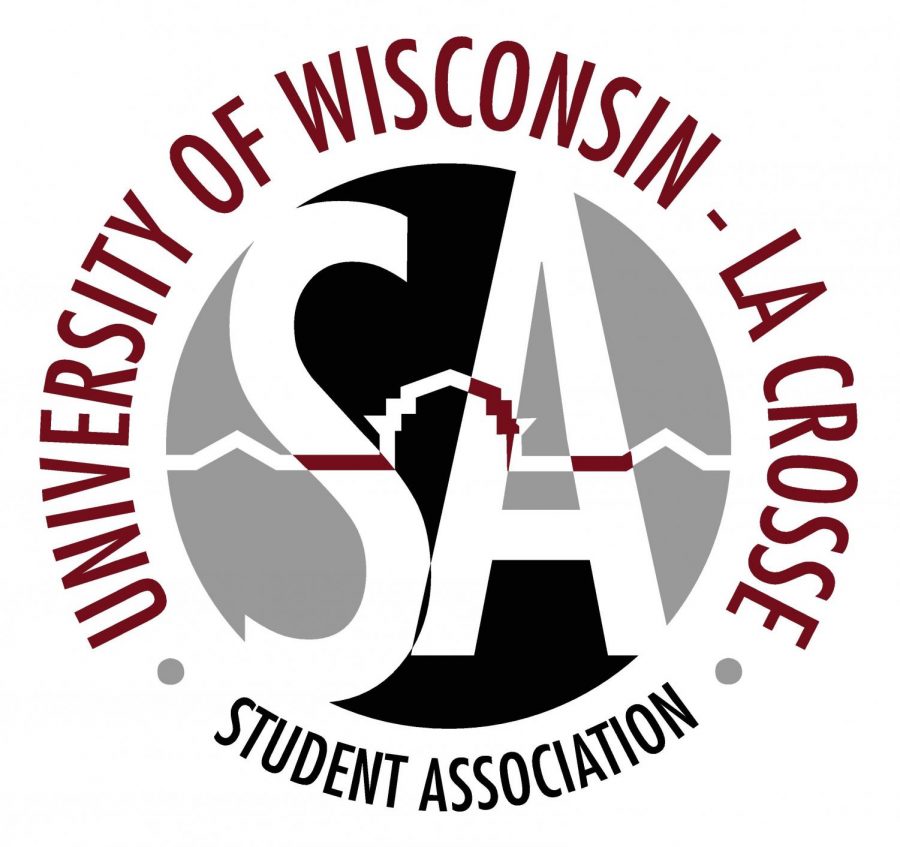Student Association discusses the census, signage in the COVE and alcohol-free residence halls
March 6, 2020
Student Association (SA) met on March 4 with the assistant director of university centers Michael Slevin, to discuss resolutions endorsing the FY21 academic initiatives differential allocation committee (AIDAC) budget, the removal student organization reservation signage from the COVE and the possibility of an alcohol-free residence hall.
Micheal Slevin discussed the importance for SA to influence their constituent’s participation in this year’s census. As a University of Wisconsin-La Crosse representative for the regional census committee, Slevin will be attending a meeting where he hopes to gain insight on how to effectively count as many UWL students as possible.
He asked SA what makes the census particularly important to college students. Some mentioned how vital these numbers are in order to properly prepare the university with the correct resources for student success, but Slevin clarified how pivotal these numbers are for UWL to have the opportunity to provide Pell grants, the subsidy provided by the U.S government for students in need of financial assistance. He also mentioned that this process is required by law, “so technically, that’s there too,” said Slevin.
Slevin pointed out some important dates for the senators, with March 12-20, the dates when the information will be sent out to college housing, where students living off-campus would be able to view the census. March 30-April 1 will be the final push for U.S citizens to complete their census forms.
With FERPA, UWL is unable to “transfer in” all students into the census system as a whole due to privacy policies within students’ personal data. So, instead, residence assistance will hand out the paper census to their residence during semester closing meetings.
For the off-campus students, initially, Slevin wanted to publicize this as an individual duty that students should take upon themselves to complete. “But that conflicts with normal census procedures,” says Slevin, as it states that one person is to take account of all members of a household, and with UWL off-campus housing being one which Slevin notes as sometimes seeing more than six people within one household, he asked SA to raise their hands in order to gauge how well this would work. With not one hand being raised, Slevin is looking to promote around campus the importance of census participation through advertisements.
President Sita Agterberg asked what these advertisements would look like and what they have done in years past, also questioning what it would look like if parents intervened with this process with filling their child’s forms out for them. Slevin noted how intelligent the software used for the census is when it comes to identifying areas where students live during the school year when these forms are completed in their hometowns.
With ten years having passed, the census process is different now. Accessibility is something Slevin says will enforce a stronger participation rate since the census now offers electronic options compared to the once paper-only days of the early 2010s.
SA discussed how effective the new AIDAC budget will be within learning centers, where materials like expo markers could be withheld from the budget in order to keep it from exceeding their funding, something that Sen. K.C Cayo notices as a problem. Sen. Dylan Schock also recognizes this issue but advised Cayo and SA of the importance this fund offers for student success.
With his first written resolution, first-year Sen. Issac Ozolins brought forth an idea to the senate involving the removal of signs for the offices in the COVE that asks students not in the organization to refrain from sitting in their spaces. Many, if not all senators opposed this idea, as those who participate and identify within marginalized groups who have their voices heard within these reserved areas feel like this freedom could be jeopardized.
Agterberg concluded the meeting with a proposition for alcohol-free residence halls, for students who wish to live a sober college lifestyle or for those who are in recovery and would wish to be away from any substance abuse. SA recognized some issues, primarily involving the involvement of parental influence within dorm selection.
SA felt that this could end up being another way for parents to patrol their children’s college experience. Ideas on what it would look like if a student where caught drinking, or if they decided that they would actually enjoy a lifestyle around alcohol within these residence halls was discussed. SA questioned if the roommate selection process would be a more effective way of withholding or involving students in the world of substance.






